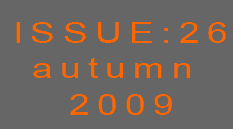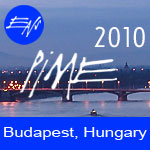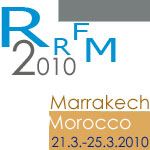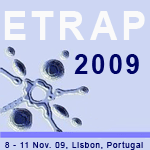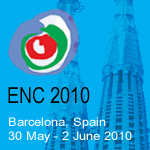ENS NEWS N° 26
Nimby versus yimby: a case of matter over mind
There can be no more basic human instinct than the need to protect and preserve what’s yours. We are all keen to ensure that the environment in which we live remains a sanctuary, retains its character and is protected from corrupting outside influences. Some things are so sacred that even the mildest-mannered among us can easily switch into self-preservation mode when we sense that the status quo is under threat. This common manifestation of our humanity has always been there but it has only recently been given political relevance by the modern-day concept of nimby (“not in my back yard”). Nicholas Ridley, a former Secretary of State for the Environment in the Conservative government of Margaret Thatcher, is credited with popularising the term after being confronted by a series of orchestrated protests against local development projects that the government was trying to push through. Interestingly, it was soon revealed that while championing these projects, which the government saw as crucial to generating jobs and stimulating the economy,
Mr. Ridley had himself opposed a low-cost housing project near a village where he owned a property. So, there is a bit of nimby in all of us. The problem is though, as George Orwell might have put it, “some of us are more nimby than others.”
There is nothing that unites people in a common cause more than the belief that our back yard is under threat. We are prepared to fight tooth and nail to preserve our little piece of paradise on earth. Sadly though, solidarity can quickly fade when achieving personal goals takes the upper hand. Someone else can have that promised motorway, extra airport runway, or nuclear power station, just as long as it is not in my vicinity. The cause may start out as a common one, but things can soon revert to an each man for himself scenario. Worse still, that instinct for self-preservation often makes us oblivious to - or consciously ignore - differing views. Self interest can provoke tunnel-vision. Perhaps if some hardened nimby advocates took the trouble to consider an alternative scenario they might be pleasantly surprised.
Of course, when it comes to energy provision it is not just nuclear power stations that bear the brunt of prevailing nimbyism. Even renewable energy sources are not exempt of criticism. Increasingly wind farms are targeted by people who are not prepared to have rows of wind turbines blight the beautiful countryside with their ugliness, noise and frequent periods of pointless inactivity. And the press now regularly presents the increasingly heard views of the anti-wind energy lobby – much to the dismay of those people who think that all forms of renewable energy are, by their very nature, beyond reproach.
But how relevant is all this to the nuclear science community. Well, in addition to the fact that we are all members of the human race and share the same defining characteristics, we are also custodians of that most precious of resources – knowledge. And increased acceptance through increased knowledge holds the key to transforming people’s perceptions of nuclear energy. Bertolt Brecht, the German author and dramatist, said in his book The Life of Galileo that: “The aim of science is not to open the door to infinite wisdom, but to set a limit to infinite error.” The solution is not new, nor is it rocket science. But perhaps we need to periodically remind ourselves that the nuclear community must do more to communicate the knowledge that will counter the nimby argument. It must present the facts that will counter misunderstanding and misinformation. It must present an alternative scenario where “having it in my back yard” might actually be a positive thing for the local communities involved. It is not easy when you have to fight against human instinct and private interest, and as scientists we may think that communicating is not our primary role. But we cannot operate in a communications vacuum. It is vitally important to give the facts in order to counter the fiction. Unless we can convince people by presenting the truth and by engaging them in the debate they will never consider that alternative viewpoint and the work we do will not get the recognition and support that it deserves. Unless we can “sell” our science more effectively to a broader public the nimbyists will remain largely ignorant of the many benefits of nuclear technology. And the status quo they so crave will be maintained.
It might seem a very tall order to change entrenched thinking but it can be done. Look at what recently happened in Sweden. I recently visited SKB’s facilities at Forsmark. There it was explained to me how a concerted communications campaign and the involvement of the local community it in every step of the decision-making process relating to the selection of a deep underground waste repository led to consensus and increased acceptance. Scientists and industrialists working in the Swedish nuclear sector have added good communications to their list of skills and it has paid off. Of course, it is much easier to initiate such a project when the local community is already won over to the nuclear cause. But, nevertheless, a well-organised communications plan and programme of information based on openness and dialogue can persuade people that a new scenario can happily coexist with our natural instincts. They are not necessarily mutually exclusive. There is a new emerging force in Sweden (and elsewhere too) that is providing a counter argument to the nimby brigade – the yimby (yes in my back yard) brigade. My trip to Sweden encouraged me to believe that good science communicated well can change the way people react to nuclear energy. The good people of Forsmark and the neighbouring communities, who have the same self-preservation instinct as everybody else, know what is in their common long-term interest and have acted accordingly.
With more and more countries reviewing their nuclear phase-out policies, extending the operational duration of their reactors, launching new build programmes or opting for long term underground waste disposal, the climate is more propitious for changing hitherto unchallenged and preconceived views. Yes, there is a bit of the yimby in all of us too. It’s a question of activating it and allowing it to express itself.
ENS NEWS N° 26 kicks off with a traditional Word from our President. In it David Bonser asks the fundamental question “Does the drive for new build based on standard global reactor design reduce the scope for innovation?” Since, as David points out, innovation is the “lifeblood of all technology industries” this question is one that scientists and people working in the nuclear industry should ask themselves.
This year’s autumn edition features a double dose of nimbyism, with each one approaching the subject from a different angle: following on from an opening observation about yimbyism and nimbyism, Andrew Teller enlists the help of German philosopher Emmanuel Kant to apply an empirical approach to assessing whether the nimby syndrome is actually morally justified.
The ENS Events section concludes with a report on the current crisis that is affecting the global medical isotopes business and the possible implications it has for medical treatment.
Another bumper ENS Events section provides detailed information and personal appraisals of a series of ENS events that have either just taken place or will take place in 2010. Visit the ENS website for further information on next year’s conferences, which include regular fixtures like ENC, PIME and RRFM - and register your interest now!
The Member Societies and Corporate Members features a number of reports on subjects as diverse as space flight research, high pressure boiling water reactor concepts and nuclear and the environment and the latest newsletter from the Spanish Nuclear Society.
The YGN section includes reports on: the Spanish YGN’s participation in the latest International Conference on Environmental Remediation and Radioactive Waste Management, which took place in Liverpool in October; the Swiss Young Generation Project 2009, which is a training course offered by the Swiss Nuclear Society’s YGN, the Belgian YGN’s “communications mission” and the UK YGN’s technical tour to Finland.
Finally, the NucNet section highlights some of NucNet’s latest news reports, including the first in a series of special interviews – this one featuring the former Head of Greenpeace UK and co-founder of the website Climate Answers, Stephen Tindale.
Enjoy ENS NEWS N° 26!
|

Mark O’Donovan
Editor-in-Chief, ENS NEWS
|
|
|

